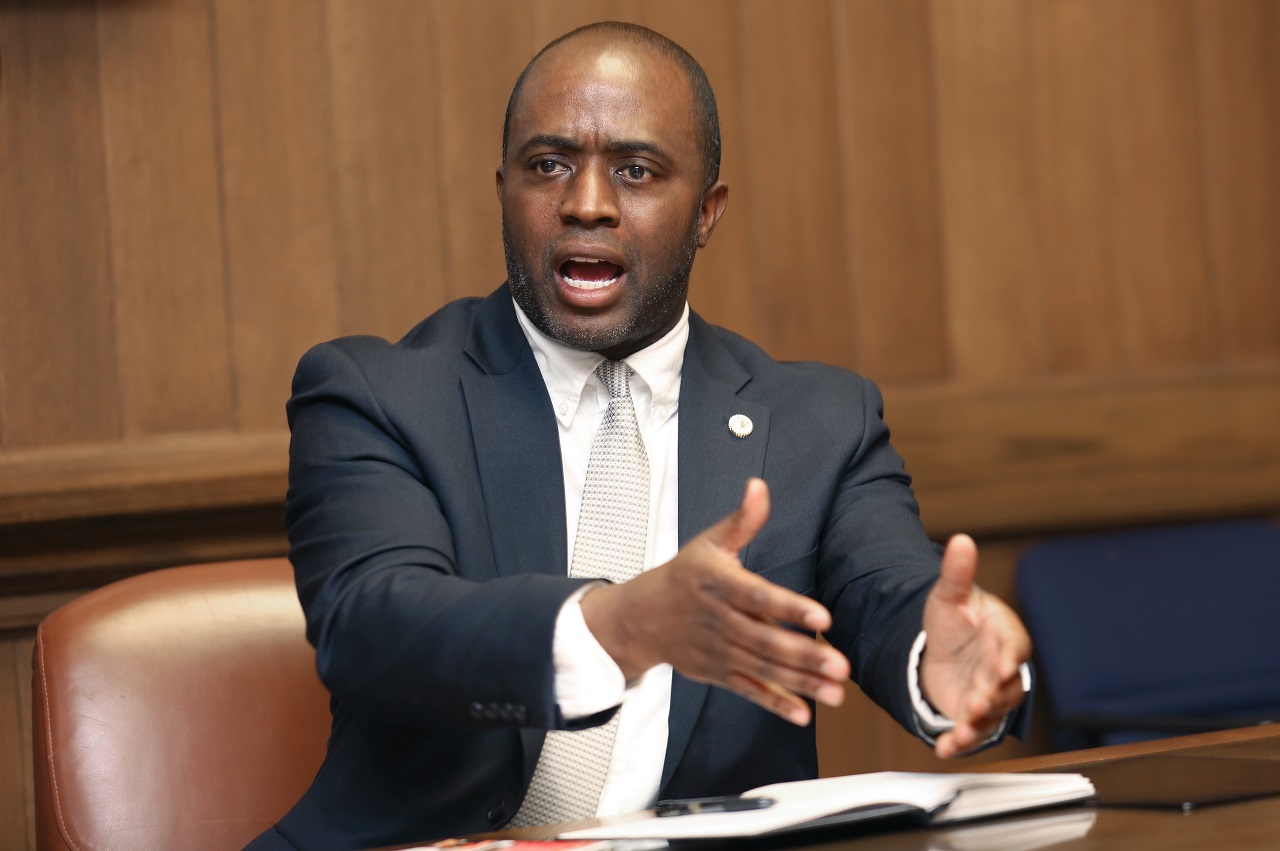But those who testified said there are inadequate instructional materials that open windows into the lives of diverse populations and mirror most students’ experiences.
“As Californians, often we’re too quick to sing our praises,” said Chris Nellum, executive director of the nonprofit Education Trust-West, which advocates for racially diverse groups of students. “The truth is, the evidence tells us inclusivity in our curriculum is already lacking.”
Thurmond said: “We have a wonderfully diverse student body in California, and many of our textbooks haven’t kept up with that diversity. This is a chance to diversify those narratives.”
Pressures and risks for publishers
Thurmond asked those at the hearing to applaud representatives from the four textbook publishers that attended the hearing — and indicated that many others declined the invitation.
The companies were only given a minute for statements, and then to respond to Thurmond’s and others’ often leading questions to recognize that they have a financial stake in creating content that honors the state’s diverse student population, where students of color make up two-thirds of enrollment.
“The question is,” said Thurmond, “do you believe it is in your financial best interest? These efforts that you’re talking about, do they contribute to a financial benefit to your company — and if they haven’t, do you think that they could?”
And then, he asked, “Are you willing to continue working with this task force? Are you willing to come up with some thoughts on what we might do for those publishers who aren’t here? Yes, no, maybe? OK, I got a thumbs up.”
All the representatives affirmed that they include a diversity of voices and perspectives in their textbooks and take inclusivity seriously. While demurring on Thurmond’s question on how much revenue comes from California, they said they would not bend to pressure from other states and districts to change their focus on equity.


